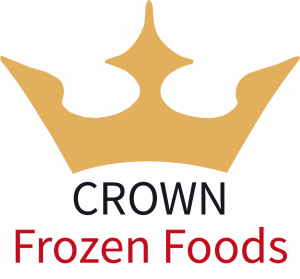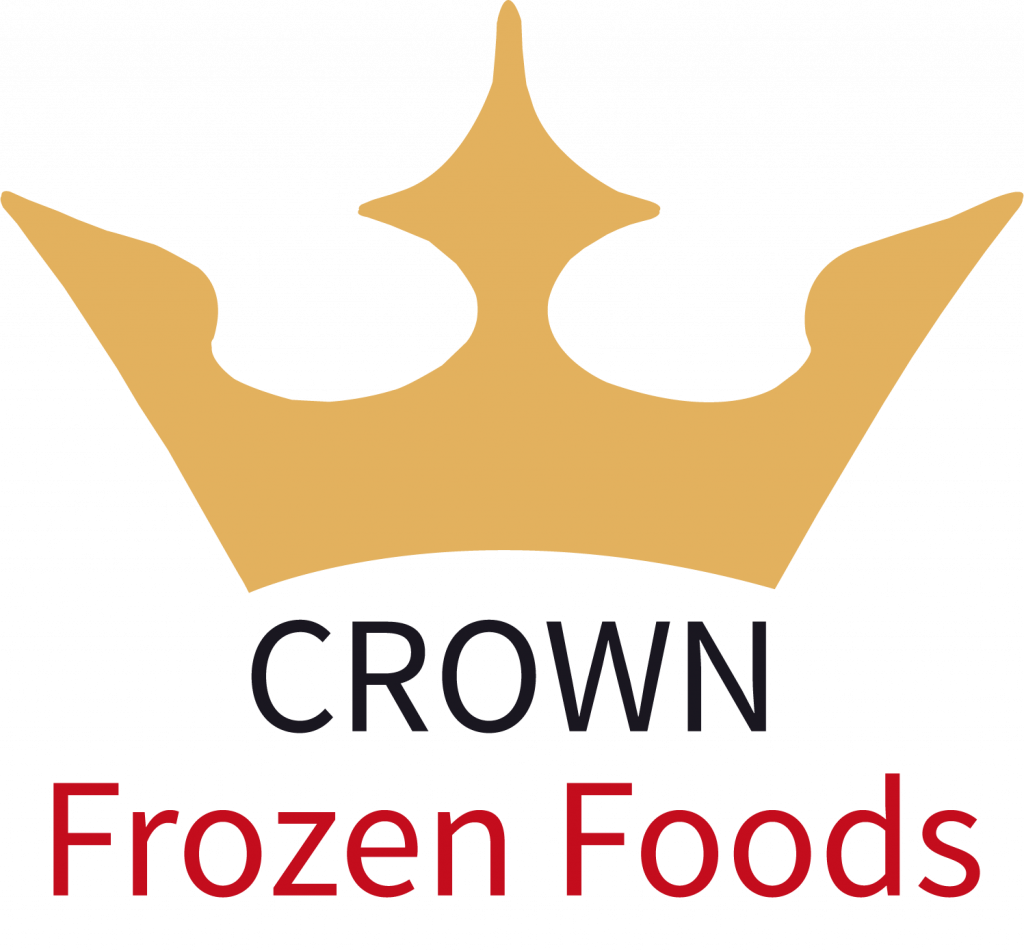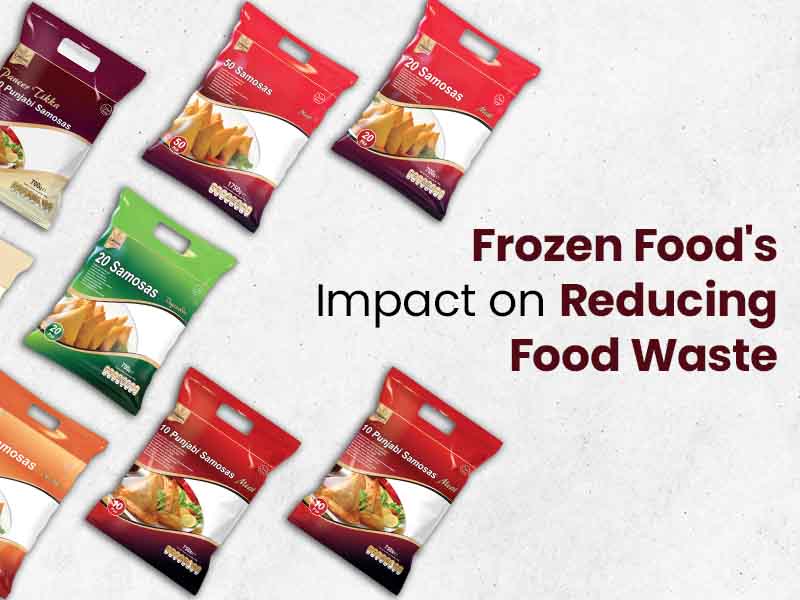Frozen food has made our lives easier by preventing food waste. It comes pre-cut and packed, which reduces the chances of food getting wasted. In this blog, we will discuss the impact of frozen food on reducing waste.
Studies show that, in terms of waste, frozen food is a much safer option than its fresh counterparts. With frozen food, you use only the exact portion you need, while the rest can be left for later. The result is not only reduced food waste but also savings for your wallet.
You can prevent unnecessary food waste by using frozen food. Here are some reasons why
1. Extended Shelf Life
Freezing is a highly effective method to prevent food waste by extending the shelf life of perishable items. It works by arresting the growth of microorganisms, which in turn slows down the spoilage process. This enables food to be stored for prolonged periods without sacrificing its quality, thereby minimizing the likelihood of items going bad before they can be consumed.
2. Preservation of Nutritional Value
Freezing is a preservation method that helps maintain the nutritional content of food. Unlike some other preservation techniques, freezing generally doesn’t cause significant nutrient loss. This is important in preventing the disposal of nutritious food and ensuring that consumers receive the intended health benefits.
3. Reduced Spoilage in Retail and Distribution
Frozen food in the supply chain can greatly reduce spoilage risks during transportation over longer distances. This is particularly significant in the distribution and retail phases of the supply chain, where it enables better inventory management and minimizes losses due to perishable items reaching their expiration dates before being sold. By implementing frozen food solutions, the supply chain can achieve greater efficiency, reduce waste, and ensure the safe delivery of food products.
4. Batch Cooking and Portion Control
Consumers can efficiently utilize frozen foods for batch cooking and portion control purposes. By cooking substantial amounts of food in advance and freezing individual servings for later use, one can effectively minimize the chances of discarding leftovers. This approach is particularly beneficial for those who lead busy lives and desire to enjoy homemade meals without having to invest significant time and effort in meal preparation each day.
5. Reducing Out-of-Season Waste
Frozen foods enable us to relish specific fruits, vegetables, and seafood throughout the year without worrying about their seasonal availability. This helps curtail the wastage of perishable items that may remain unsold or underutilized during times of surplus, promoting sustainable consumption practices.
6. Minimizing "Hideous" Food Waste
Did you know that frozen food manufacturers often use fruits and veggies that don’t look perfect or are not aesthetically pleasing but are good for your body’s hygiene? This is because retailers might reject them due to their appearance. However, these fruits and vegetables are still perfectly edible. By using them in frozen food products, the industry helps prevent food waste and ensures that these items are not thrown away just because they don’t look pretty.
7. Emergency Food Reserves
Maintaining a stock of frozen food at home can serve as a crucial contingency plan, offering a reliable reserve during unexpected events such as natural calamities, pandemics, or disruptions in the supply chain. This can aid in ensuring a consistent food supply and mitigate panic-induced buying patterns that frequently result in food wastage.
8. Educating Consumers on Storage and Expiry
Frozen food packaging often includes comprehensive guidance on optimal storage conditions and expiration dates, providing consumers with essential knowledge of appropriate handling techniques. This information mitigates the possibility of unwarranted disposal of frozen food items and ensures that individuals utilize them before quality deterioration.
9. From Production to Consumption
Frozen food has proven to be an effective solution in reducing food waste at various stages of the food supply chain and in households. This is because of its several benefits, from production to consumption.
When storing Food, what can we do to avoid food waste?
Effective Strategies to Minimize Food Waste
- Adopt Meal Planning: Meal planning aids in reducing food waste by helping you keep track of the amount of Food you need and use. It also assists in ensuring that you only purchase the items required for your meals.
- Check your Inventory: Before heading out to shop, it is important to check your inventory. Doing so will help you identify the items you need and avoid purchasing items you already have.
- Create a Shopping List: Creating a shopping list effectively reduces food waste. It will help you purchase only the essential items and avoid impulse buying.
- Proper Storage and Freezing Techniques: Proper storage and freezing techniques are crucial in minimizing food waste. Ensuring that food items are stored correctly will keep them fresh and help prevent spoilage.
- Be Flexible: Flexibility is key in reducing food waste. Being open to making changes to your meal plan, such as using leftover ingredients to make another meal, can go a long way in reducing food waste.e kitchen.
FAQ’s
Is freezing effective in preventing food decay?
Yes, freezing is an effective method of preserving Food for extended periods by slowing down the movement of molecules, leading to the dormancy of microbes. It inhibits the growth of microorganisms that cause food spoilage and foodborne illness, making it a reliable way of keeping Food safe.
What are the benefits of frozen Food for the environment?
Frozen foods are an excellent option for fresh produce due to their extended shelf-life and ease of use. They can significantly reduce food waste up to six times, which is of utmost importance considering that one-third of the Food produced globally is wasted, with 45% being fresh fruits and vegetables.
Conclusion
In short, Frozen Food is highly effective in reducing food waste by preserving freshness, extending shelf life, and offering convenient options for both manufacturers and consumers. It plays a vital role in creating a sustainable and efficient food supply chain, especially in reducing waste during fishing or farming, transportation, and even while preparing meals at home. Frozen Food has been proven to be highly effective in reducing household waste as it stays fresh for longer and allows users to use only what is required.




